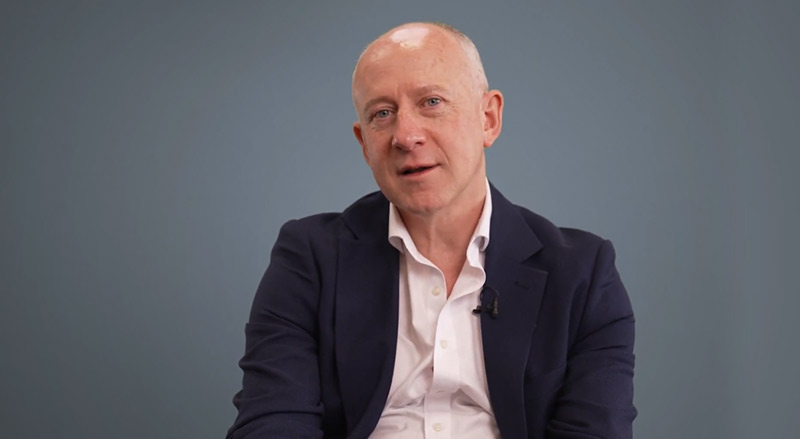Recently we have published the eBook ‘Engineering a Smarter and Greener World with Tokenovate’. It describes how Tokenovate implements new ESG practices by tackling issues such as reducing carbon footprints, promoting ethical supply chains, and enhancing corporate governance.
Tokenovate is a UK-based financial services technology company providing distributed financial market infrastructure and smart legal contracts. What sets Tokenovate apart from competitors is that it implements the BSV blockchain, marking a significant leap by integrating blockchain technology into platforms that drive global financial markets.
During the London Blockchain Conference (May 30 – June 2, 2023), we had the opportunity to speak with the founder and CEO to learn more about Tokenovate and the exciting derivatives trading sector that Tokenovate is helping to transition onto web3. Watch the interview with Richard Baker here:
Understanding the significance of the derivatives market
To explain Tokenovate’s business, Baker explained the significance and importance of the derivatives market. It is a staggering $1 quadrillion global industry that influences financial transactions across every country and has implications on virtually all parts of society.
Derivatives, often used for financial risk management, play a crucial role in mitigating price fluctuations between the time of purchase and delivery of goods or financial instruments. From agricultural products like fertilisers and grains to interest rates, fixed income, and even digital assets, derivatives touch almost every aspect of daily life.
For this reason, the derivatives market is strictly regulated. Interestingly, however, this applies less to technology providers that supply infrastructure and applications for exchanges and other players in this market, as Baker explains:
‘The world of being an exchange or being a broker or being a custody provider or a clearinghouse, these are regulated activities… underneath that layer is the world of financial technology providers, […] that mediation layer or that enabling layer is not regulated. There’s a little nuance to that, though, that you have to manage, which is inside global regulation are specifications that technology companies must meet to help those regulated actors meet their compliance rules and go on to report to regulators,’ he said.
Navigating the regulatory landscape
Tokenovate’s approach was to identify standards within the derivatives industry. These are handled by an institution called the International Swaps and Derivatives Association (ISDA). Tokenovate became a member at a time when the organisation was digitising its master contract, which helped Tokenovate to implement it for their platform:
‘They’ve created a digital library, and they’ve begun the process of allowing digital negotiation to happen. And that negotiation now outputs in code,’ he said. ‘And so Tokenovate is taking that code and translating that into a platform which is fundamentally a rules engine. And that rules engine acts as a modern-day execution platform, bringing the expectations and the obligations of the contract and executing them as smart contracts and writing those events to the BSV blockchain.’
While the derivatives market is a very broad area, with many different requirements and specifications, Tokenovate is initially focussing on voluntary carbon credits, aligning with the global push toward sustainability and the transition to a net-zero carbon footprint. The eBook mentioned above, which is also briefly summarised and presented here, describes this enterprise in more detail.
Balancing self-regulation and innovation with BSV Blockchain
In the interview, Baker mentions that the regulation of financial technology in the derivatives market is less extensive and explicit than the regulation of the derivatives market itself. Therefore, Baker highlights the significance of self-regulation within the industry, emphasising the importance of market participants taking responsibility for their operations.
Baker describes a hybrid approach between top-down regulatory oversight and self-regulation as ideal. Tokenovate pursues this balance between top-down and bottom-up regulation to ensure transparency and compliance while fostering innovation. The integration of the BSV blockchain is ideal for both aspects, transparency and compliance as well as innovation, as Baker emphasises.
Why Tokenovate is built on the BSV blockchain
Baker emphasises that the choice of the BSV blockchain for Tokenovate to base their business was not arbitrary. He highlights two different aspects and recounts his personal experience. The first one is the scalability and affordability of the BSV blockchain:
‘It’s unrealistic to think about building a smart contract trading platform or a lifecycle engine that where every event, if every event in processing costs me, you know, $1.50 or $2 more. Ultimately, that isn’t a proposition that I can take into the traditional finance market. It would be too cost-prohibitive to run on a digital ledger technology with high transaction fees and low throughput. So the BSV Network is bringing scalability. It brings affordability.’
For Baker, another aspect is too often overlooked and is therefore particularly emphasised by him: the programmability of BSV:
‘Everybody skips over the fact that this is a stable native protocol with a hundred opcodes, and those opcodes are programmable by the Bitcoin script language. So I can treat it as a microcontroller computer and I can program functions to those codes. And, when I’m building a derivative contract, that’s important. So there’s a number of attributes that are unique to the BSV chain that just don’t exist anywhere else.’
